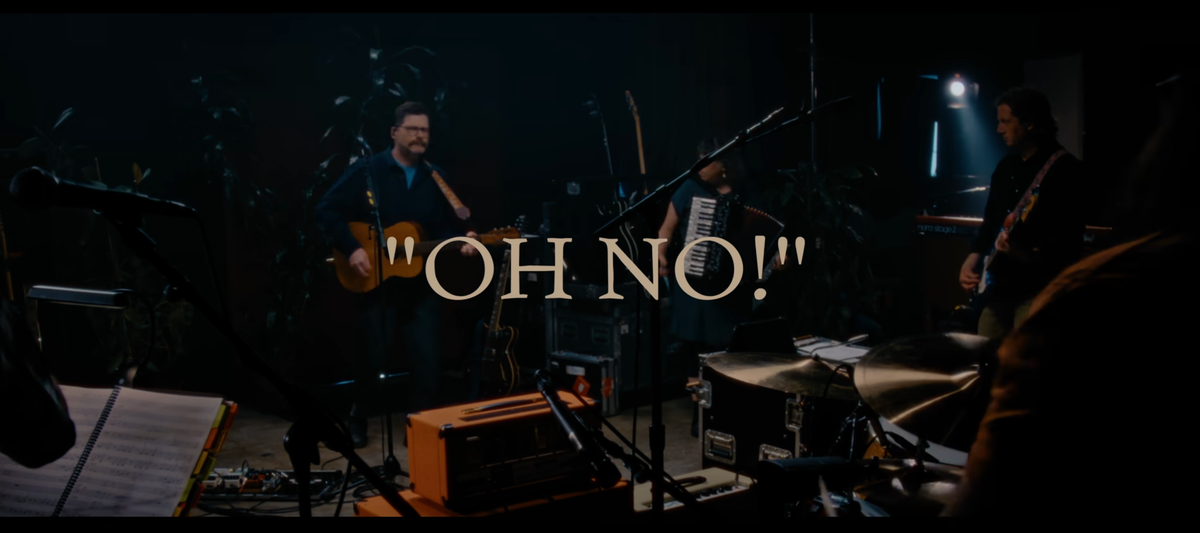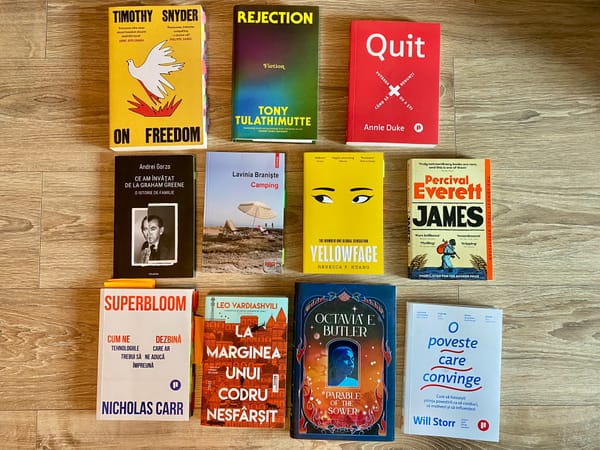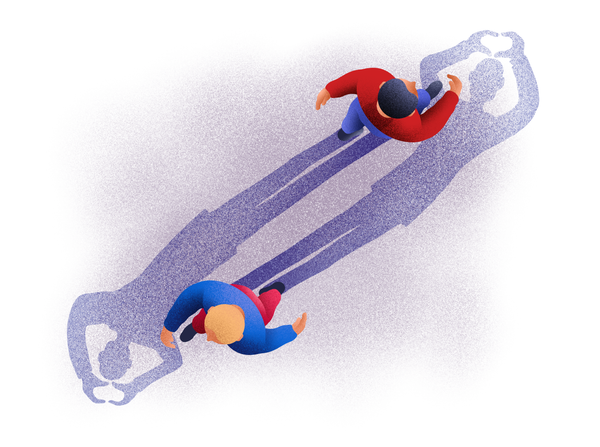Draft Four: Seeing Beyond the Anger
Be an Illuminator, not a Diminisher.

I’ve been feeling pretty naïve, if not downright stupid over the past few days.
The previous letters have been about how we could look at journalism as a connective tissue in our communities, something to ease pain and loneliness, a guide to navigating struggle, a forum for engaging, a bridge you can cross to meet the others, whomever they might be.
But my everyday experience is filled with seeing a lot of people who seem not only disinterred in this, but who actively want to create even more rifts, burn even more bridges, display even less empathy. There is a lot of anger, much of it warranted, some of it righteous, but around me it seems like the dominant emotion, and I have a difficult time coping with the amount of it.
A few weeks ago I visited the tax office. It was 8am, I was the first one through the door, and after some mumbling around, I found the right teller. Just so you can get the full picture, we’re talking a huge window, mostly covered with taped paper so you don’t see what’s beyond, with a small opening that’s cut low, so you have to bend down to be heard. I was there because some documents didn’t upload online, and I got an email asking to bring them in person. The woman on the other side of the glass didn’t even bother looking; she shoved the documents back, raised her voice and shouted at me to re-do everything online. I can’t, I said, I received an email from the institution that instructed me to come in person. She wasn’t swayed, said the emails are not her problem, and I was doing my best to not start shouting back, even though I felt humiliated and stuck.
Eventually, I asked: “Why do you feel the need to shout at me?”
She stopped for a brief moment, rolled her eyes, and pointed me towards a door to the side of the hallway, where I did eventually untangle the bureaucracy, but only because a colleague of hers acted differently. It must have been a draining week for me, too, because when I left the tax office, I felt like crying, which made me wonder what was wrong with me: didn’t I know, at 42, that interacting with Eastern European bureaucracy is a lottery and sometimes it’s just brutal?
I did, of course. But does it have to be?
I can’t live all armored up, thinking that every interaction might be either a conflict or someone trying to take advantage of me or just another episode in a never-ending beef with the world.
This is a small example, minor, personal, but there’s so much beefing around. A prime minister is shot in Slovakia, and we rush to call it karma. A homeless person gets on a train in Bucharest, sits on the floor and the picture a rider takes of them becomes an ideological battleground online between those that want “somebody to clean up the streets”, and those that see in it the inherent evils of a capitalism that abandons people. Some local students want to organize a pro-Palestinian encampment on campus and the simple intention of doing so is branded as antisemitic. And of course, pick your Internet beef of the week – from Eurovision, to the recent Kendrick v. Drake showdown, about which an Atlantic staffer wrote this: “We’re witnessing the modern implementation of an ancient rite, the desecration of an individual for the moral cleansing of the masses.”
What he was arguing is that we weren’t necessarily looking at a rap battle to determine who’s the top dog of the industry, but a showdown of othering to determine who gets cast out, and who gets to stay, “a resolution that is ugly and unfair but, more than anything, cathartic.”
I’ve enabled pledges as a first step to a paid version of Draft Four, which would allow me to do more journalism aimed at connecting us.
There’s something cathartic about anger, and conflict draws us in. There’s a negativity bias hard-wired in our DNA, and storytellers make use of it to hook our attention. I always believed that the more responsible ones don’t pile on – keep fueling the fire with conflict until we’re helpless and ridden with anxiety. But maybe in this post-pandemic warring world, anger is a wiser survival mechanism than empathy or curiosity. Maybe it’s a safer choice.
The problem is that anger doesn’t seem to lead to connection, or it leads to just enough connection to pick a side where you’re united less by what you have in common than by who you need to take down.
“And then the crisis of connection came”, writes David Brooks in How to Know a Person, a book I’ve been slowly reading for a few weeks now. Brooks, a New York Times columnist, has plenty of people beefing with him, but this book is not settling any scores. On the contrary. It makes a plea for being an Illuminator, instead of a Diminisher. Here’s how he puts in this essay:
“Diminishers are so into themselves, they make others feel insignificant. They stereotype and label. If they learn one thing about you, they proceed to make a series of assumptions about who you must be.
Illuminators, on the other hand, have a persistent curiosity about other people. They have been trained or have trained themselves in the craft of understanding others. They know how to ask the right questions at the right times – so that they can see things, at least a bit, from another’s point of view. They shine the brightness of their care on people and make them feel bigger, respected, lit up.”
An Illuminator’s mission is to make others feel seen and heard. And Brooks goes through ways to do that, all of which you can imagine: paying attention, listening, gathering stories, practicing empathy, being aware of your own identity and privilege etc. But he also acknowledges that being an Illuminator is a tough sell today:
“So far, I’ve been describing a process of getting to know someone as if we live in normal times. I’ve been writing as if we live in a healthy cultural environment, in a society in which people are enmeshed in thick communities and webs of friendship, trust, and belonging. We don’t live in such a society. We live in an environment in which political animosities, technological dehumanization, and social breakdown undermine connection, strain friendships, erase intimacy, and foster distrust. We’re living in the middle of some sort of vast emotional, relational, and spiritual crisis. It is as if people across society have lost the ability to see and understand one another, thus producing a culture that can be brutalizing and isolating.”
*
It won’t come as a surprise to you that I hope more journalists take up the task of Illuminators.
I was speaking with my cousin over breakfast yesterday, and she was talking about how tough it was for her son, a competitive swimmer, to handle journalists who came to watch them compete. The parents of other swimmers actively avoid them. The majority don’t trust journalists, not because they don’t trust their information – but because they don’t even trust their intentions.
They corner the athletes in every moment possible, they try to put words in their mouths through how they ask questions (“Will you celebrate with a shot of alcohol tonight?”), and then file stories that run with clickbait headlines that say: “Swimmers will celebrate with shots”.
It’s a small example, but it’s how most of the journalists she’s met over the past decade, as the mother of a young athlete, have shown up. Not to make others feel seen and heard; just the opposite.
Two ideas here that connect with a conversation I had with Joy Mayer, a longtime friend and inspiration, who has been running the Trusting News project since 2016. Joy’s essential pitch for all this time – actually since way earlier, at the University of Missouri, where we met in early ’00s – is that you need to meet your community’s needs to be trusted. You have to listen, engage, invite people in. But there’s a piece that has to come before that, she told me recently, and it has to do with benevolence and the perception of it:
“Do I feel like I can trust you? This kind of has to come first. Before I’ll believe your checklist, before I believe the fact checkers, I have to believe that the people doing the fact checking have integrity. This Knight/Gallup research last year asked about societal benevolence and individual benevolence. And the question is like, do I believe that journalists care what happens to me as a result of their work? And do I believe the journalists care what happens to society as a result of their work?”
For many people, the answer was “no”, they didn’t think journalists gave a shit. (The percentage of those who say this is higher for national vs local news). This might partly explain why so much of factchecking is toothless: why would I trust factchecking by people I don’t know, and whose motives I don’t trust in the first place?
A lot of the reasons people don’t trust us is because of our Diminisher instincts: they think we do hit pieces, that we take people down for fun, that we enjoy shaming and ridiculing others (and not just public officials).
“That’s why the way we talk about things like accountability can actually be really tricky”, Joy told me. “Because accountability for accountability’s sake, doesn’t necessarily lead to healthier communities. And the thing that journalists hold out as success does not always leave people better, better equipped to navigate their shared life.”
*
The second idea I’ll borrow from Joy is the idea of humility. (It also shows up a key ingredient of being an Illuminator in Brooks’ book: “When you’re asking good questions, you’re adopting a posture of humility, and you’re honoring the other person.”)
“When I was starting Trusting News such a huge percentage of the work, had to do with transparency and explaining integrity and, you know, explaining the process, pulling back the curtain, recognizing that people don’t understand journalism.
And there is still a lot of that that’s needed: journalists take for granted that their ethics are visible when they’re not. They take for granted that people understand how they decide what to cover when of course nobody understands. The industry can’t decide. In a newsroom we can’t agree on how we decide what we cover! And yet, somehow, we think the public will know that right? So there is a lot of benefit gained, and we have plenty of research that shows that when you explain how and why you did a story, people are more likely to trust it.
The piece of it that has shifted in the second half of this work, kind of a lot since 2020 especially, is humility – journalists understanding what they’re missing and how they can do better.
We’re asking more often the fundamental question of who feels seen and understood by journalism, and who feels neglected or misrepresented by journalism, and the answer to that question holds a lot of keys. So I think that the longer I’m doing this, the more I realize how much we’re getting wrong, and the less patience I have with journalism that might meet journalists’ definition of success but isn’t actually helping any communities.”
*
Stirring anger does meet a lot of journalists’ definitions of success: it brings traffic, it brings attention, it brings engagement, sometimes it even leads to bad people being fired (at least for a while). It’s likely because of this last part that we engage in so much conflict entrepreneurship, and sometimes value it over all the other ways in which we could do this work.
But it’s not the only way – and it’s probably not the recommended way if your intention is to make people feel seen and heard. Those people that are shouting at us from behind the paper-covered glass windows of opaque bureaucracies are good people, who go through life unseen (or worse). And it takes a lot of effort to recognize that and be there to honor their struggle. Often, we won’t be able to, as we have plenty of struggles ourselves and our capacity for empathy could be depleted.
But for some of us – definitely for those journalists who want to be Illuminators, I’d argue – this could be great task ahead. “To know a person well, you have to know who they were before they suffered their losses and how they remade their whole outlook after them”, writes Brooks. “If a subtext of this book is that experience is not what happens to you, it’s what you do with what happens to you, then one of the subsequent lessons is that to know someone who has grieved, you have to know how they have processed their loss – did they emerge wiser, kinder, and stronger, or broken, stuck, and scared? To be a good friend and a good person you have to know how to accompany someone through this process.”
And then, you can share this story with others and guide them on their struggles, too. That might be naïve, but it’s also worth it.
PS: The only side dish today – because it matches the theme – is the newest The Decemberists’ song, Oh No!. “This song is about causing havoc, causing chaos, its narrator forever followed by an even greater form of chaos, a great darkness”, the lead singer Colin Meloy has said. “But it’s a darkness you can dance to!”



